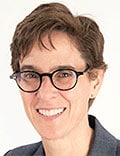Medical students often struggle with family planning goals and their potential implications for their career and workplace dynamics. This struggle can ultimately affect students' choice of medical specialty and lead to delayed childbearing, according to a new study.
Surgical specialties appear to offer particularly little support for family building, and medical residents with children are perceived as a burden on colleagues.

"This study was an important first step in understanding how medical students approach family planning within their careers," study author Shirin Dason, MD, a fellow in gynecological reproductive endocrinology and infertility at Mount Sinai Hospital at the University of Toronto, Ontario, told Medscape Medical News.
"We are keen to share our findings in the hopes that institutions — and the profession overall — reflect on how we can improve upon supporting learners and faculty in their family planning goals," she said.
The study was published online on December 13, 2023, in JAMA Surgery.
Student Perspectives
Previous studies have indicated that physicians face difficulties with the timing of childbearing during their 10-15 years of medical training, often leading to delays and higher rates of age-related pregnancy complications. Physicians also experience workplace stigma associated with pregnancy, lactation, and childcare, and they're more likely to experience a lack of support among colleagues, work dissatisfaction, and burnout.
Dason and colleagues conducted a qualitative study with a diverse group of fourth-year medical students to better understand students' family planning perceptions, goals, and challenges, as well as the timing of family building and the context of specialty choice. Using semistructured interviews conducted on Zoom in 2021, the research team spoke with 34 medical students from the University of Toronto's Temerty Faculty of Medicine who had matched to residency programs.
Among the 34 students, 23 were women, and the students' ages ranged between 24 and 33 years. They pursued various specialties such as family medicine (23.5%), obstetrics and gynecology (17.6%), surgery (11.8%), internal medicine (11.8%), and other medical specialties (35.3%).
The central theme that the research team identified was that medical students viewed family planning as unsupported during a medical career, especially during training. Two thirds of the participants said they considered their family planning goals during specialty selection.
In addition, four supporting themes emerged. First, the students noted that there is no ideal time to build a family during a medical career. They felt that their choice to pursue medicine required a delay in family planning compared with nonphysican peers. As a result, a career in medicine changed their ideal family plan. They also noted challenges with parental leave, work-life balance, financial stability, medical training schedules, the physical demands of pregnancy, and childcare availability.
Second, the students said that family planning in medicine is a taboo topic. They noted the lack of open discussions about family planning and the individual burden of navigating their family building goals. They said that mentors' attitudes — whether encouraging or discouraging — influenced their personal views.
Third, the students said that surgical specialties offer less support for family building. Overall, medical schools and residency programs don't offer explicit information about family planning support, so students' opinions were based on personal experience and informal mentorship, which contributed to ongoing stereotypes. For instance, surgery was often viewed as generally discouraging family planning, and those who wanted children were more likely to choose a specialty and program seen as more supportive.
Fourth, the students perceived that residents who have children place a burden on their colleagues and contribute to peer burnout. This added to their fears about parental leave, career reputation, and workplace dynamics. Ultimately, these views led students to seek larger programs that could better distribute work demands and allow parental leave without burdening colleagues. They also sought specialties with lighter work-hour requirements and less interdependence between residents.
A 'Hidden Curriculum'
Dason and colleagues concluded that a "hidden curriculum" discourages medical students from building a family during training. They created a website called Family Planning for Docs to help medical students, residents, and fellows find information and plan.
"Within our institution, we have developed a workshop and integrated this into both the postgraduate and undergraduate curricula," Dason said. "Our goals now are to first understand the systemic issues within postgraduate training and beyond and then to create meaningful support systems."
Dason and colleagues suggested changing medical culture and improving support for physicians by explicitly addressing the conversation with trainees. In Canada, for instance, supports exist for paid parental leave in training, but medical students still seem to perceive that taking parental leave isn't supported by the broader medical community.
Beyond Productivity

Commenting on the findings for Medscape Medical News, Liane Feldman, MD, professor and chair of surgery at McGill University, said, "The attitudes and perspectives of medical students in this study mirror the prevailing culture — as a profession, we value work and productivity above all else."
Feldman, who wasn't involved with the study, wrote an accompanying commentary for JAMA Surgery. "It comes as no surprise that there is an epidemic of burnout and a looming mental health crisis among surgeons," she said.
Dason and colleagues also recommended improving medical culture by creating innovative interventions to support team dynamics and distribute the workload when a trainee takes parental leave.
"We need to move away from our society's 'workism' mentality and recognize, value, and celebrate other metrics for success outside of productivity," said Feldman. "Tough choices will be required, but we and the patients will all benefit from a cultural shift that makes real commitments in supporting us all to have full lives."
The study was funded by the 2021 Knox Richie Award from the Department of Obstetrics and Gynaecology at Sinai Health, as well as the Physicians' Services Incorporated Foundation's New Investigator Award, the Comprehensive Research Experience for Medical Students Summer Research Program, and the Gordon C. Leitch Bursary for Student Research in Obstetrics & Gynaecology at the University of Toronto Temerty School of Medicine. Dason and Tang reported no relevant financial relationships.
Carolyn Crist is a health and medical journalist who reports on the latest studies for Medscape, MDedge, and WebMD.


Comments